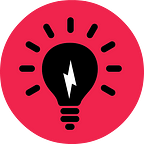Hi! I’m Mehak Ahmed from New Delhi, India and I’m the Survivor Services Facilitator at Chayn. I joined Chayn full time in June 2022 and I’ve been working on our Bloom platform.
Bloom is a free online support service for survivors of abuse and assault. We’ve curated mental health focused, gender-based courses on the themes of healing from sexual trauma, understanding sexual trauma in context of our patriarchal society, understanding anxiety, relationships and more on themes of understanding and reflecting on the self and the society better. Anyone can access our courses in video or written format. These courses are self-paced and available in English, Hindi, Spanish, French and Portuguese. Our courses aim to be part of anyone’s healing journey and they have been very helpful in our users’ healing!
At Chayn my biggest project to date has been localising our Bloom courses from English to Hindi. Localising means that we don’t just plainly translate, but we localise the content according to the cultural context of the audience. So you’ll find South Asian specific conversations and examples from pop culture (movies, writers, politics) from our facilitators who represent the geographical diversity of India!
We currently have two courses in Hindi — Yuan Hinsa ke Ghav se Ubharna and Samaaj, Pitrasatta aur Yaun Sadma. You can check these courses out at bloom.chayn.co/hi.
About me, I’m a therapist with a foundation in psychodynamic psychotherapy and decolonised psychology. The most important principle that we follow at Chayn and something that I strongly uphold in my therapeutic practice is being trauma-informed. This is the acknowledgement that we all come from our own different struggles and past experiences and it’s important that we empathise with it. We are aware of how trauma gets manifested in our minds, bodies and social interactions. We acknowledge that we might never be able to understand someone’s trauma fully because of their identities and their own subject experiences, but this doesn’t mean that we can’t be sensitive towards it.
In our capitalist world’s attempt to ‘measure’ the outcomes of therapy and healing, I hold on to the belief that human behaviour and emotions are way more complex and can’t really be quantified. We are trying to make the study of human behaviour as ‘scientific’ and ‘objective’ as possible. However, healing journeys are not linear. There’s a back and forth, a roller coaster with a small straight line of healing in the middle. Us trying to predict behaviours, feelings and healing is our attempt to have an illusion of control over ourselves because we fear facing the vastness and complexities of our emotions.
I want to make the mental health space more inclusive towards principles that are outside of the Western capitalist outlook. I feel healing is as much about community support and not just an individualistic act expected to be done independently and in isolation. Before starting with Chayn, I worked on a project to understand depression amongst youth activists of India. For a year, I interviewed activists from around the country, each sharing how the political climate of the country affected their mental health so much. But it was the togetherness in their collective protests and struggles that made them feel hopeful and less lonely and isolated. The community of activists made them feel that there are others with them and that they are not alone.
All cultures have their different ideas of support and processes of healing. For example, in India, tantric and religious rituals and prayers are very important in healing a person if they might have symptoms of mental health disorders like schizophrenia. I remember talking to a woman begging on the streets as part of my fieldwork for a mental health project. She shared that despite not having money, she was content with her life because she knew that God was with her and that gave her peace. I still remember the conviction in her eyes when she said that.
As a community of mental health experts, we can either turn our face and ignore these practices or beliefs altogether because they’re not scientific. Or, we can look closer with curiosity at how it’s supporting people in their healing.
I’m also a certified yoga instructor and my experience with yoga has further made my belief stronger that the body truly keeps a score. When our minds can’t take the trauma that we experience, it gets stored in our muscles. That’s why we feel a ‘release’ in our muscles when we massage them or regularly do stretching. Due to my yoga practice, I have felt lighter after holding a deep stretch for as long as 5 minutes! Whenever I have a regular yoga practice, I’ve felt more confident, more in touch with my body, more in control and stronger than before. My heart feels calm just by thinking about my practice. I would encourage anyone who is doing their self-work to do something with their body. You’ll thank yourself for this gift of self-love!
Coming back to my work at Chayn, we give space to all these diverse thoughts and I love it! I’m grateful for the meaningful work I get to do here to support survivors in their healing journey. Our volunteers and the fulltime team have created some of the most useful resources you’ll ever come across on the internet! You can check out our Manipulation is Abuse Guide, A Good Friend Guide (on how to support a friend in an abusive relationship), or listen to our podcast Less Than 2%!
You can get in touch with me about all things Chayn, mental health and yoga at mehak@chayn.co. You can follow my yoga instagram @movewithmehak and therapy instagram @reflectionisland.
